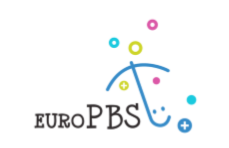EuroPBS
The PBS Europe project addresses the needs of teachers in five European secondary schools in coping with challenging behavioural issues in everyday school life. Challenging behavioural issues can negatively influence teacher-student interaction, class climate and the learning environment. Teachers often feel unprepared, unconfident and incompetent in trying to manage challenging behaviour and this can affect teachers self efficacy. Teachers of all participating (associate) partners indicate the need for interventions, tools and support in dealing with challenging behavioural problems of students, both individually and in the group, and if possible to prevent this behaviour. The project provides an innovative solution to address the needs of teachers, by transferring a proven US concept, Positive Behavior Support (PBS), and adapting it to the European setting. PBS can be defined as: “an assessment-based approach for supporting students with behavioural problems that provides an empirically validated set of strategies for preventing problems and promoting pro-social behaviour” (Hieneman, Dunlap & Kincaid, 2005).
Implementing PBS is a systems change process for the entire school. The underlying theme is teaching behavioral expectations in the same manner as any core curriculum subject. The consortium wishes to implement the PBS framework in its five participating secondary schools and, if possible and where necessary, ensure its cultural fit with the ecological situation present in each pilot school. Based on the results, experiences and observations of these five pilot schools, a European PBS concept was developed.
Within the project three main activities are distinguished:
(1) school development: development of the European PBS concept and implementation in the partner schools, (2) development of a PBS Handbook and Training Tool Kit for In Service training, and
(3) research activities: are teacher needs fulfilled and does their teacher efficacy grow when dealing with behavioural problems.
The five pilot schools have successfully started with the PBS implementation process and this has impacted their school organisation, class climate, teacher-student relations, the way how they view behavioural problems and the design of interventions. Partner schools are proud on the implementation and especially on the team of teachers who have accomplished this. All schools use explicit behaviorial expectations based on agreed values and rules to establish a safe and predictable learning environment where students, staff and other stakeholders can learn and behave. Based on the results, experiences and observations of these five pilot schools, a General PBS Europe concept is developed, describing in detail the US PBS concepts, the way the PBS Europe concept was developed, and the added European flavour to the US PBS concept. Based on this General PBS Europe concept, the PBS Europe Handbook for Implementation, a Training Toolkit with PBS Materials, a 4-Day In-Service Training Program, and a DVD was developed.
These are the main products of the PBS Europe project and can be found on www.europbs.com. Results on teachers’ sense of self efficacy revealed that participating Turkish and Hungarian teachers tended to report a higher sense of self-efficacy. Interviews revealed that teachers reported they were positive about their own self-efficacy. Even though teachers were faced with challenges during the project, they reported positive changes took place in their schools. Teachers stated PBS contributed to their development as a teacher. A pilot in implementing a specific intervention in the Portuguese school showed that the intervention appears effective based on the pre and post behavioral data as well as the opinions of students, teachers and parents. Students showed less problem behavior and the majority more pro-social behaviors. Students and parents reported that the support was helpful and effective. The multi-country partnership has benefited from the project in terms of collaboration on PBS school development trajectories, and developing a European version of the US PBS concept by building the foundation of a European PBS Network, which will continue to collaborate and share experiences after the project period.
Goei, S.L. (2013). Public Final Report EUROPBS. Report written as part of PBS Europe project 50996-LLP-1-2010-NL-COMENIUS-CMP. Amsterdam: VU University. DOI: 10.13140/2.1.4059.2647

